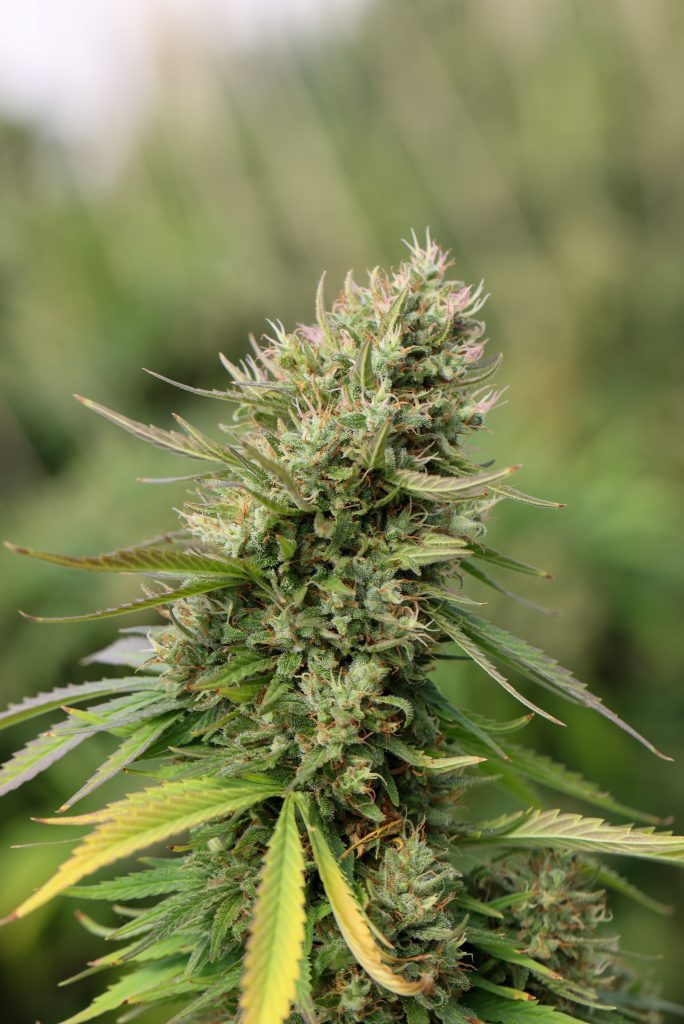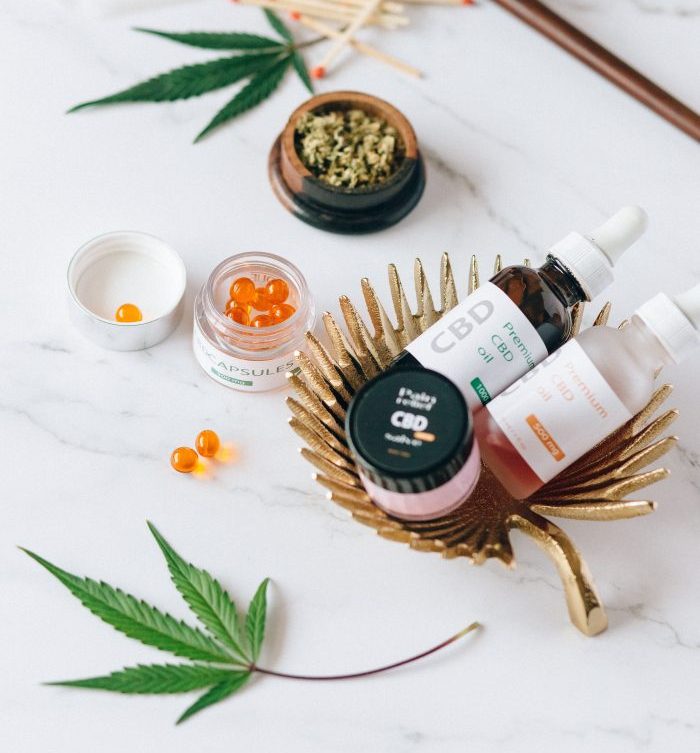In recent years CBD has risen to the forefront of the wellness industry. You can find CBD products scattered amongst the creams and lotions in the cosmetics aisle and alongside topical pain relief rubs at your local pharmacy and supermarket. CBD can even be found in drinks and edible treats. So, what is CBD and is it safe to use?
Cannabidiol, commonly called CBD, is a compound found in the Cannabis sativa plant. It’s a naturally occuring compound and one of more than a hundred different cannabinoids found in the cannabis plant. The therapeutic benefits of CBD are a hot topic of research, and as we learn more about this compound we continue to discover its broad beneficial applications.
CBD is NOT Psychoactive
Before going further, it’s important to be clear about the effect of CBD. It is not a psychoactive compound, which means it does not get you “high”. The main cannabis compound responsible for these mind altering effects is THC (tetrahydrocannabinol), and it is generally not included in CBD products. There’s no need to worry about a CBD only product causing you to feel psychoactive impairment.
That said, CBD can cause you to feel relaxed and can reduce perceived pain, so in a sense it does influence your mind. Additionally, in states with legal marijuana, if you do not wish to experience a “high” it is important to check and be sure products you purchase do not contain THC, as there are some combination products available.
Beneficial Effects of CBD
CBD interacts with our endocannabinoid system, which is a complex network of chemicals and receptors in the body which help various functions including motor control, behavior, emotional response, and immune function. Receptors for cannabinoids are found in areas such as the heart, liver, muscles, adipose tissue, pancreas, reproductive system, and immune system.
When used, CBD interacts with the endocannabinoid system to provide therapeutic benefits. Common benefits include pain relief, improved sleep quality, reduced feelings of anxiety and depression, and inflammation reduction. The body of research on CBD is ever growing, so keep your eyes and ears open in the coming years for more information to come regarding CBD and its therapeutic applications.
Legality and FDA Regulations
 At the time of this article, CBD is legal in most but not all states in the USA. Therefore, it is important to check your state laws before purchasing and/or traveling with CBD products. Hemp derived CBD is currently federally approved, however marijuana derived CBD is not. While both of these products are in the same plant family, hemp contains only very small amounts of THC, and marijuana contains higher levels of THC.
At the time of this article, CBD is legal in most but not all states in the USA. Therefore, it is important to check your state laws before purchasing and/or traveling with CBD products. Hemp derived CBD is currently federally approved, however marijuana derived CBD is not. While both of these products are in the same plant family, hemp contains only very small amounts of THC, and marijuana contains higher levels of THC.
CBD products sold over the counter are currently not FDA regulated. Without FDA regulation, it is difficult to ensure products actually contain the amount of CBD they claim. There is only one FDA regulated product, called Epidiolex, which is a prescription CBD product labeled to reduce specific types of seizures disorders in children. However, if you live in a state with legalized marijuana, your CBD product may be derived from marijuana rather than hemp, and therefore fall under more strict regulations.
Conclusions
CBD is generally regarded as safe, however you should check with your healthcare provider before beginning this or any new healthcare product. CBD products come in many forms, from consumable drinks and edibles, to topical creams and oils. While CBD itself will not cause psychoactive effects, if you live in a state with legal marijuana and do not want psychoactive effects, you want to check with your dispensary to be sure products you use do not contain THC. There are many proposed therapeutic applications for CBD, including anxiety, pain, sleep disturbance, and more. Keep yourself up to date and keep researching in the years to come. With the recent changes in regulations surrounding CBD, it is likely that an abundance of new knowledge will be flooding the field in years to come, so check reputable scientific sources periodically to stay up to date.
** Safety for children under 18 years old is unclear and should be avoided without consultation with a qualified healthcare provider. As always, consult your healthcare provider before trying any new healthcare products. Discuss if CBD is right for you with someone who is qualified and knows your health history.

